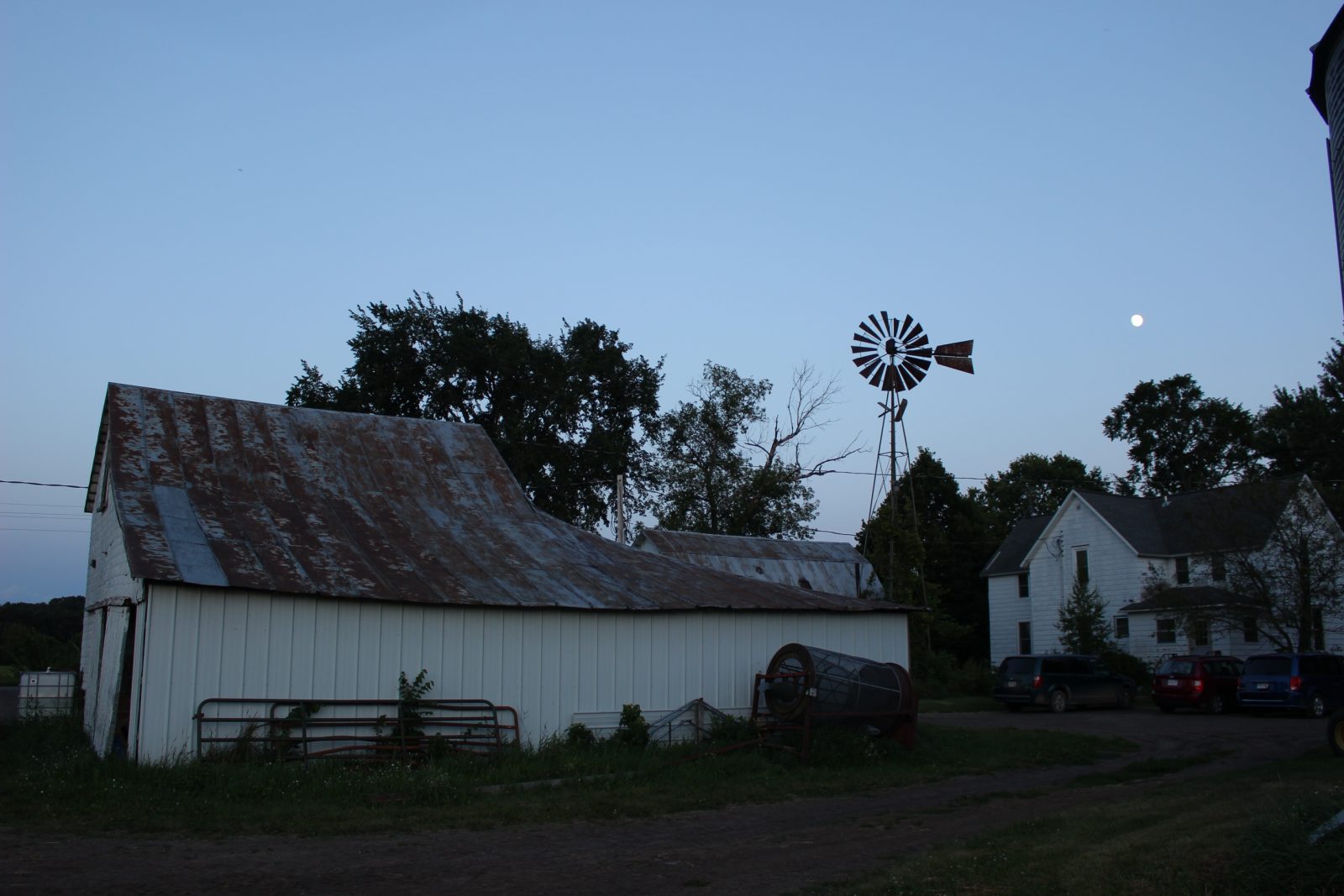by Renata Anuhea Sebstad, 13F
Last summer, through the Ethics and the Common Good Internship Grant, I traveled across the United States to find out “what’s at stake with steak?” My studies had left me with questions like; how do we value meat? How do we care for the animals we’ve domesticated for food, and what is our responsibility to them? I aimed to address these questions by talking to people who are involved in the meat industry. Among others, I met up with a slaughterhouse worker in Minnesota, rabbit farmers in Massachusetts, a spokesperson from the Animal Liberation Front in New York City, and pitmasters from one of Austin, Texas’ most popular BBQ joints. The result was a podcast that offers a wide range of perspectives on the ethics and politics of raising and slaughtering animals to eat.
My summer started the day after commencement at Hampshire College when my travel companion Pace and I finished loading our car and started south. Over the next 40 days, we were slated to travel 6500 miles around the perimeter of the U.S., with a brief stint in Mexico, towards my concluding destination of Osceola, Wisconsin.
My first stop was in Norfolk, Virginia to visit the PeTA (People for the Ethical Treatment of Animals) headquarters and hear from animal rights activists on their thoughts about the relationship between humans and animals, and our treatment of them. Then it was down to New Orleans and across to Texas. In Texas, I met with Mexican-American border town ranchers who live in the U.S. but run a cattle-raising operation just outside Ciudad Acuña. From there, we traversed the desert to Los Angeles where I got a tour of a small meat-packing plant that distributes meat across the western United States. We changed direction once again and headed north along the California coast to San Francisco. Once there, we hit the Ferry Plaza Farmers Market and met up with Salt Point Meat Company, a nose-to-tail butchery in the Mission District, that loves to eat good meat, just less often.
After a few other stops further north, I finally stopped in the midwest at Community Homestead, a lifesharing community on a working farm in Osceola, Wisconsin that supports people within a diverse range of ability and disability. Upon arriving, I immediately felt like my road-weary body was home. I settled into a farmhouse with five people, two of whom are long-term volunteers and three are long-term ‘lifesharers,’ the community’s term for people who require assistance in some way. I fell into the rhythm of community: waking up before dawn to milk the cows, gardening through the day; eating dinner with different neighbors each night; and having fun after our day’s work with movie nights, games, walks, and swimming.
My summer field research and time at Community Homestead left me with a supported lived experience and deeper questions on how we relate to meat but also to each other. Over those 40 days, it amazed me how open and vulnerable people got with me about the difficult topic of meat, and the experience of exchanging trust in these conversations was so powerful. My hope is that this resulting podcast does not marginalize any perspective of the meat industry but allows the opportunity for transparency and diversity in an industry that is often designed to be opaque and singular. I feel re-committed to my work in supporting individuals with divergent experiences to access equitable platforms to share their stories and lived ethos. I’m thankful for the care and intention that I witnessed and received from each community I was invited to.
Renata Anuhea Sebstad is an inquisitive farmer, gardener, printmaker, and radio producer who seeks to connect idea with practice. She hopes to continue asking hard questions and reckoning with difficult answers wherever she goes. You can listen to her podcast here.


